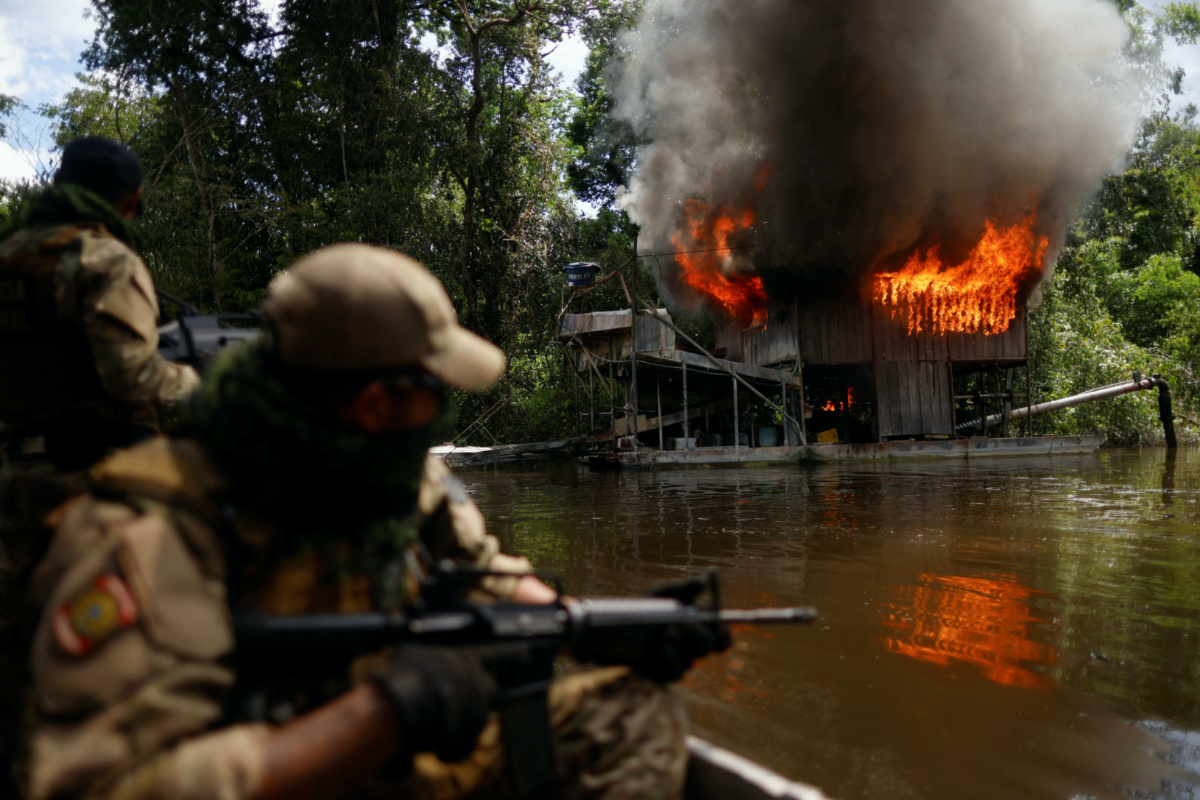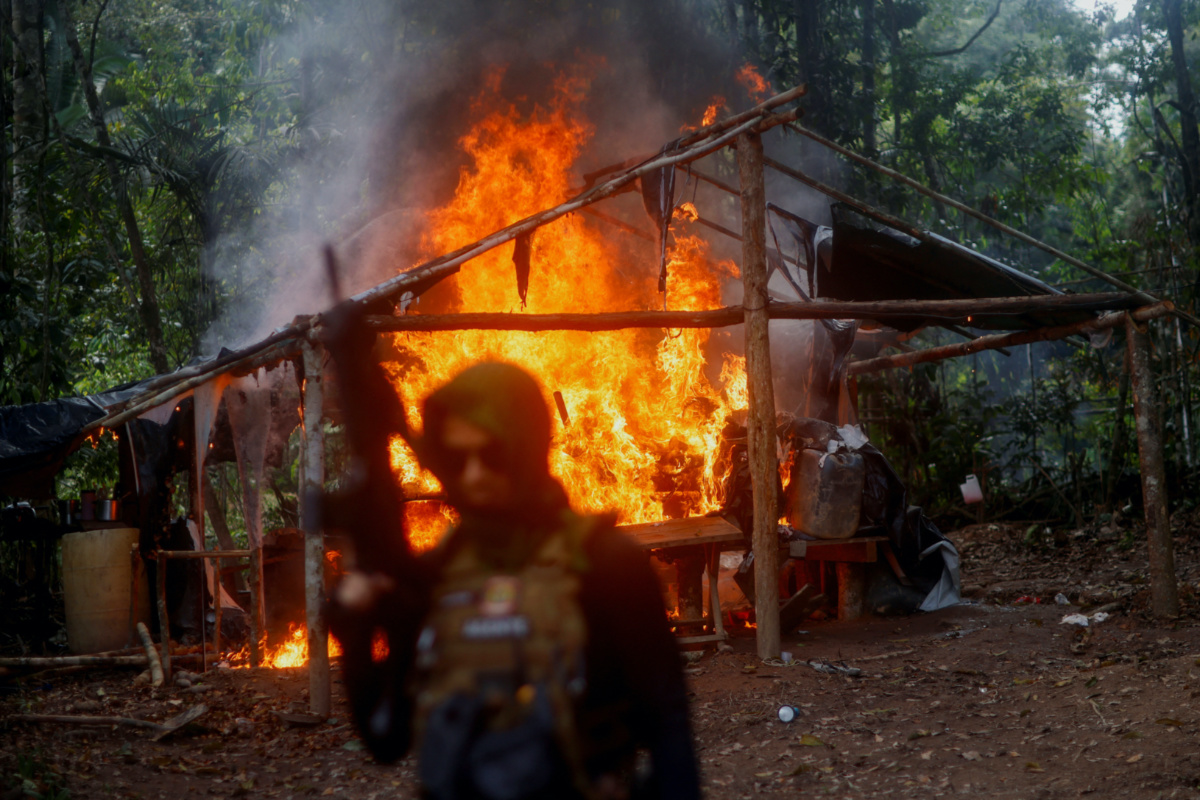Sucunduri, Brazil
Reuters
Deep in the Amazon rainforest, Brazil is fighting destructive wildcat gold mining as it spreads from Indigenous lands into government-protected conservation areas.
Federal Police have joined the government’s biodiversity conservation agency ICMBio on a series of recent operations to catch illegal gold miners and destroy their camps and equipment.

An illegal gold dredge burns in Paruari River during an operation against illegal gold mining at the Urupadi National Forest Park in the Amazon rainforest, conducted by agents of the Chico Mendes environmental agency ICMBio with support of the Federal Police, the Federal Highway Police, Brazilian Intelligence Agency (ABIN) agents and Brazilian Public-Safety National Force officers, in the municipality of Maues, Amazonas state, Brazil on 1st June, 2023. PICTURE: Reuters/Adriano Machado/File photo
Leftist President Luiz Inacio Lula da Silva’s government has already been cracking down on mining on Indigenous reservations. But that has pushed some miners to other forests where there has been little enforcement.
This month, armed officers of ICMBio, a government agency named after murdered environmental activist Chico Mendes, swooped down in helicopters on wildcat camps in the upper reaches of the Tapajos, a tributary of the Amazon River.
They set fire to barges used to pump and filter ore, destroyed excavators and chainsaws, and seized weapons, radios and scales used by miners to weigh their gold.
Lula has vowed to stamp out illegal mining and end deforestation by 2030. That is a sharp reversal of policy from his predecessor Jair Bolsonaro, who was criticized globally for relaxing environmental controls, giving illegal loggers and miners free range in the Amazon. He argued that Brazil had the right to develop its natural resources.
On one recent mission, a Reuters photographer followed an ICMBio team into the Urupadi National Forest where agents detained a handful of wildcat miners and destroyed their tents, excavators, dredging equipment and fuel supplies.
The miners had cut down swathes of jungle and dug dozens of ponds to dredge for gold that they separated from sand and ore with mercury, a contaminant that poisons fish in the rivers.
Through the open door of their incoming helicopter, the ICMBio agents fired automatic weapons at motor boats carrying fleeing miners. They fired again to blow up barrels of diesel fuel and set fire to excavators so they could not be used again.
“We destroy their camps and they keep coming back,” said mission commander Sidney Serafim.

A miners’ camp is destroyed at an illegal gold mine during an operation against illegal gold mining at the Urupadi National Forest Park in the Amazon rainforest, conducted by agents of the Chico Mendes environmental agency ICMBio with support of the Federal Police, the Federal Highway Police, Brazilian Intelligence Agency (ABIN) agents and Brazilian Public-Safety National Force officers, in the municipality of Maues, Amazonas state, Brazil on 23rd May, 2023. PICTURE: Reuters/Adriano Machado
During a three-week operation, the agents found 20 mining sites and 11 clandestine airstrips in the forest, along with kilos of mercury and thousands of liters of diesel.
Detained miner Fabio Santos said he had worked prospecting for gold in Munduruku territory further along the Tapajos river, but had moved out due to law enforcement missions and conflict with the Indigenous people.
“We thought it would be quieter here. Bolsonaro did not destroy our equipment,” he said.
We rely on our readers to fund Sight's work - become a financial supporter today!
For more information, head to our Subscriber's page.
“Things are going downhill with the new government,” said another miner, Ramon Marques. “God left the gold here for us to enjoy it,” he added.
The men were set free into the jungle on foot. Only the manager of one of the wildcat mining sites, Manuel de Jesus Silva, was taken into police custody.
He ran a store in a wooden shack where he sold canned food and liquor to the miners for grams of gold, and had a snooker table outside for them to play.
“I used to make 200 grams a month, but in the last two months I got just 100 grams,” Silva complained.






